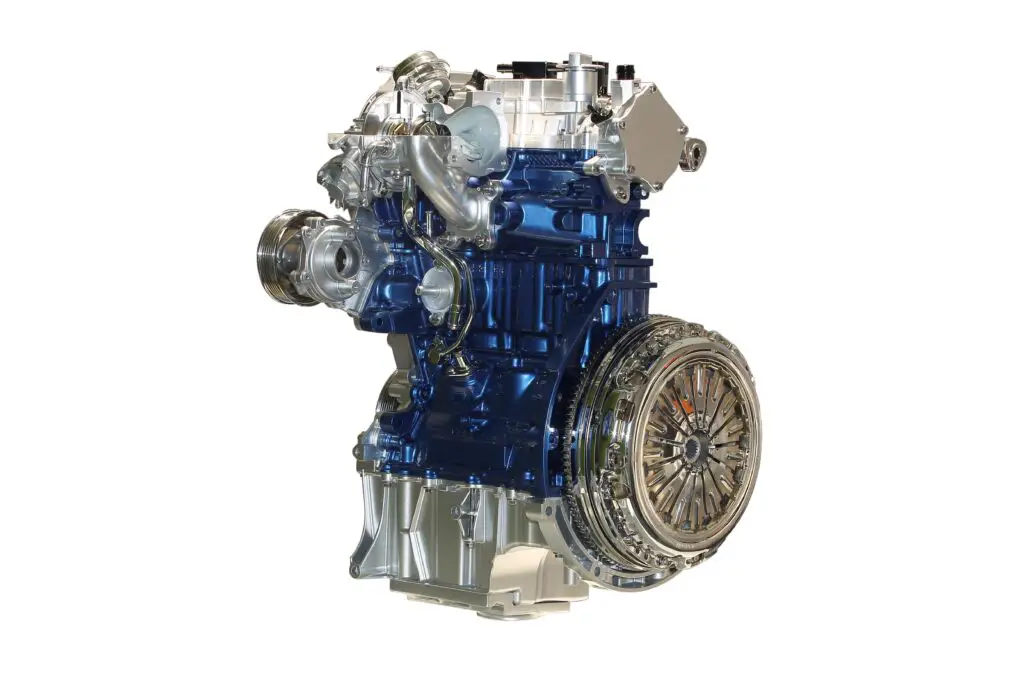Ford 1.5 EcoBoost engine problems include coolant leaks, turbocharger failures, and carbon buildup. These issues can affect engine performance and require timely maintenance.
The Ford 1.5 EcoBoost engine, known for its performance, fuel efficiency, and compact design, has been widely used in models like the Ford Focus, Escape, and Fusion. However, like any engine, it has faced its share of issues that have raised concerns among car owners and enthusiasts. In this article, we’ll dive deep into the common problems associated with the Ford 1.5 EcoBoost engine, the causes behind these issues, and the steps you can take to address them.
While the EcoBoost engine has earned a reputation for delivering an impressive balance of power and fuel economy, its long-term reliability can be compromised due to certain recurring problems. Understanding these problems is vital for owners looking to maintain their vehicle’s health and longevity.

Contents
Common Ford 1.5 EcoBoost Engine Problems
The Ford 1.5 EcoBoost engine offers a good balance of performance and efficiency, but like any engine, it’s not without its issues. Below are some of the most common problems that owners of this engine may encounter.
1. Coolant Intrusion and Engine Overheating
One of the most notable and concerning issues with the Ford 1.5 EcoBoost engine is coolant intrusion. This happens when coolant leaks into the combustion chamber, causing a number of engine-related issues. When coolant mixes with fuel and exhaust gases, it leads to engine misfires, rough idling, and, in some severe cases, white smoke from the exhaust. Over time, this can cause significant engine damage, especially if left unchecked.
The Cause: The primary cause of coolant intrusion is a faulty gasket or seal in the engine. As these seals degrade over time, they can no longer provide a proper seal, allowing coolant to seep into areas it shouldn’t be. This issue tends to occur after the 100,000-mile mark in many cases, although some owners have experienced it earlier.
Potential Consequences: If not addressed, coolant intrusion can lead to:
- Severe engine misfires
- Loss of engine power
- Overheating, which can damage the engine block
- Potential engine failure if coolant continues to intrude
Solution: If you suspect coolant intrusion, it’s essential to have your engine inspected immediately. In many cases, replacing the gaskets or seals can resolve the issue. However, some owners have reported the need for a complete engine replacement due to extensive damage caused by the coolant.
2. Carbon Buildup on Intake Valves
Another issue that owners of the Ford 1.5 EcoBoost engine often encounter is carbon buildup on the intake valves. This problem occurs because the engine uses a direct injection (DI) system, which means that fuel is injected directly into the combustion chamber instead of mixing with air before entering the chamber. While this improves fuel efficiency and power, it also means that the intake valves do not get cleaned by the fuel, which would otherwise occur in traditional port-injection engine
The Cause: Without the cleaning effect of fuel washing over the intake valves, carbon deposits from incomplete combustion build up over time. This can lead to rough idling, reduced engine performance, and in some cases, poor fuel economy.
Potential Consequences: If left unchecked, carbon buildup can:
- Cause misfires and rough engine idling
- Lead to stalling or hesitation during acceleration
- Decrease fuel efficiency
- Cause an increase in exhaust emissions
Solution: To combat this issue, regular intake valve cleaning is recommended. Some owners have turned to professional cleaning services that use walnut blasting to remove carbon buildup. In other cases, cleaning additives can be used to reduce carbon deposits. Regular engine maintenance and fuel treatments can also help mitigate this problem.
3. Turbocharger Failures
The Ford 1.5 EcoBoost engine comes equipped with a turbocharger to boost power and efficiency. However, several owners have reported premature turbocharger failures. This issue is particularly noticeable in models such as the Ford Escape and Bronco Sport. Turbocharger failures in the 1.5 EcoBoost engine typically occur between 60,000 and 80,000 miles, and if not addressed quickly, the failure can lead to further damage to the engine.
The Cause: There are several reasons behind turbocharger failure in the 1.5 EcoBoost engine:
- Poor oil quality or insufficient oil changes can lead to turbocharger wear.
- A design flaw in the oil feed lines or seals can cause oil starvation to the turbo.
- Metal debris from a failing turbo can enter the engine, contaminating internal components.
Potential Consequences: A failing turbocharger can:
- Cause a noticeable loss of power and acceleration
- Lead to increased exhaust emissions
- Result in costly repairs, including a complete turbocharger replacement
- Lead to further damage to the engine if metal debris circulates through the engine
Solution: To prevent turbocharger failure, it’s essential to perform regular oil changes using high-quality synthetic oils. If turbo failure occurs, the turbocharger must be replaced, and in some cases, the engine might need cleaning or replacement due to oil contamination.
4. Fuel Injector Cracks and Fuel Leaks
Ford has issued recalls for certain 2022-2023 models of the Ford Bronco Sport and Escape, which have been reported to experience fuel injector cracks. These cracks can result in fuel leaks, posing a fire hazard. This issue affects vehicles with the 1.5 EcoBoost engine and has been a significant safety concern.
The Cause: The fuel injectors in some 1.5 EcoBoost engines have been found to have cracks that allow fuel to leak. This defect is typically caused by poor manufacturing or a design flaw in the injectors.
Potential Consequences: Fuel leaks can be dangerous, leading to:
- Increased fire risk
- Poor engine performance due to fuel supply issues
- Potential damage to surrounding components from leaking fuel
Solution: If your vehicle is affected by this issue, it is essential to take it to the dealership for repairs immediately. Ford has issued a recall to replace the defective injectors with more reliable ones.
5. Water Pump Failures
Water pump failures are another common issue in the Ford 1.5 EcoBoost engine. The water pump circulates coolant throughout the engine to prevent overheating, and when it fails, the engine can quickly overheat, leading to significant engine damage.
The Cause: Premature water pump failure has been attributed to a design flaw in the 1.5 EcoBoost engine. The water pump relies solely on the tension of the timing belt to drive it, with no dedicated idler pulley to maintain the proper tension. This reliance on the timing belt for water pump operation can result in premature wear and failure of the pump.
Potential Consequences: A failing water pump can:
- Lead to engine overheating and potential damage to engine components
- Cause a decrease in engine performance and fuel efficiency
- Result in costly repairs if not addressed promptly
Solution: If your water pump fails, it will need to be replaced immediately to prevent engine overheating. Regular maintenance checks for the water pump and timing belt are advised to catch this issue before it causes significant damage.

Preventive Maintenance Tips for the Ford 1.5 EcoBoost Engine
To avoid or mitigate common issues with the Ford 1.5 EcoBoost engine, it’s essential to keep up with preventive maintenance:
- Change Engine Oil Regularly: Use high-quality synthetic oil and adhere to the recommended oil change intervals.
- Use Top-Tier Fuel: This helps reduce carbon buildup and improves engine efficiency.
- Monitor Coolant Levels: Always check for leaks or signs of coolant intrusion, and replace damaged seals promptly.
- Keep Up with Turbo Maintenance: Use the right oil and change it at regular intervals to keep the turbocharger in good condition.
- Check for Recalls: Regularly check with Ford for any recall notices related to the 1.5 EcoBoost engine.
Frequently Asked Questions
Here are some FAQs about Ford 1.5 ecoboost engine problems –
1. What vehicles use the 1.5 EcoBoost engine?
The 1.5 EcoBoost engine is used in various Ford models, including the Ford Escape, Focus, Fusion, and Bronco Sport.
2. How often should I change the oil in my 1.5 EcoBoost engine?
It is recommended to change the oil in your 1.5 EcoBoost engine every 5,000 to 7,500 miles, depending on your driving conditions.
3. How do I know if my turbocharger is failing?
Signs of turbocharger failure include a loss of engine power, strange noises from the engine, or excessive exhaust smoke.
4. Can I prevent carbon buildup on my 1.5 EcoBoost engine?
Regular maintenance, such as using high-quality fuel and performing periodic intake valve cleaning, can help reduce carbon buildup.
5. Are there any recalls for the Ford 1.5 EcoBoost engine?
Yes, Ford has issued recalls for certain models equipped with the 1.5 EcoBoost engine due to issues like fuel injector cracks and coolant intrusion. Always check for updates.
Conclusion
The Ford 1.5 EcoBoost engine offers excellent performance and fuel efficiency but is not without its problems. Identifying common issues such as coolant intrusion, carbon buildup, turbocharger failures, fuel injector cracks, and water pump issues is crucial for maintaining your vehicle’s health.